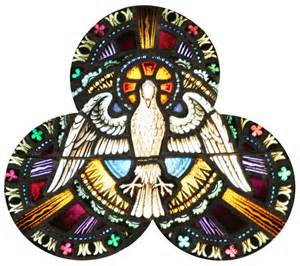“Not Seen, But Loved”

1 Peter 1:3-9 – April 16, 2023
Christ is risen! He is risen, indeed! This is the ancient Easter affirmation and declaration that has come down to us today, in the 21st century. I am using this greeting because Easter is so much more than just a day at the end of the Passion Week. In fact, Easter is so much more than bunnies and brightly dyed eggs, so much more than Easter bonnets and fancy clothing, so much more than candy and Easter baskets. So, what is Easter all about?
As we look at our Scripture reading this morning from 1 Peter chapter 1, we see right up front: “Praise be to the God and Father of our Lord Jesus Christ! In his great mercy he has given us new birth into a living hope through the resurrection of Jesus Christ from the dead.” Right off the bat, the apostle states where we get our hope from, our living hope: through the resurrection of Jesus Christ from the dead!
But, how can we have faith in Someone we have never seen? Someone who was raised from the dead, by verbal report? A long, long time ago, at that?
This little letter at the end of the New Testament came several decades after the events of the Crucifixion and the Resurrection, and after a number of the people who were actual witnesses of the resurrected Lord Jesus had themselves died. The local governments and authorities were cracking down on anything that looked like rebellion or conflict against the accepted status quo. The situation throughout the whole region was, frankly, dangerous for these new believers! Yet, they kept on spreading the witness of the Resurrection, telling what Jesus had done in their lives.
But, that isn’t the case today! Is it? No one would be afraid to speak up for Jesus, to witness to the Resurrection today, would they? Well, actually, yes. In the region I just visited some days ago, the region of North Africa and the Middle East, wide areas have official papers that everyone must have filed with the regional or local governments. When a baby is born, each one has a religious designation given to them: often, it’s Muslim, Christian, or Jew. In Muslim-majority areas, it is often frowned upon for a Muslim to change their religious designation. Period. Even if an adult wishes to change their religious designation on their identity papers, it is forbidden, by the government as well as the religious leaders. And sometimes by families, too.
This modern-day attitude that is continuing through large areas around the world today gives me a whole new insight to the great difficulty the apostle was dealing with, right here in this letter to scattered new believers throughout the region surrounding Palestine! The year is probably the early 60’s, and this letter was either written by the apostle Peter, or perhaps dictated by Peter to a fellow church leader who wrote it out for him.
I wonder again: how can we – today – have faith in Someone we have never seen? Someone who was raised from the dead, by report?
Just like many believers today in North Africa and the Middle East, “This letter was written [during the first century] when the church was under constant threat; when the benediction was spoken in a whisper because everyone knew when they gathered again someone likely would be missing, caught up in the cleansing, deportations, and imprisonment. They were afraid of their neighbors. They were afraid people might discover that they practiced a minority religion, a suspect faith. They worried that neighbors might turn them in to the increasingly vigilant authorities who were out to make the nation safe.” [1]
I suspect that the Apostle Peter, the Apostle Paul, and the other disciples had absolutely no idea that centuries later Easter would turn into a fancy dress occasion, with Easter bonnets, best clothes, and lots of candy, chicks, bunnies and Easter baskets. No, Easter in the first century was a whole different occasion. A joyous one, certainly! Yet, not one that was safe, at all. Too many perilous situations, too many unexpected and dangerous people who might be listening!
“If the question ‘should we hide’ is the one being addressed, who better than Peter to answer it? Peter, who professed his loyalty to his Lord with moral conviction and then ran like a scared bunny when things got heated. Peter, who claimed his steadfastness with loud protests and then claimed to not know who they were talking about when someone asked him about this Jesus. Of course, Peter would answer this question. He’s been there.” He knows. [2]
Thirty years after the Resurrection and Ascension in the first century, thousands had responded to the Good News, the witness of these who had actually seen the resurrected Christ. Countless thousands more had come to believe on the strength of the witness of those who had not seen and yet were committed to this Good News, blessed promise of Resurrection.
“Can you have faith in someone you’ve never seen?” The 1 Peter passage calls us to thankfulness for what God does in our lives! This reading also encourages us to have continued faith even though we haven’t physically seen Jesus. The might and the power of the Lord Jesus Christ and this same Good News of the Resurrection are preached from countless pulpits today, and shared by countless people throughout the centuries.
Some questions that face each of us today, highlighted by this reading from 1 Peter? Is Jesus your Companion, your Friend? Has Jesus worked in your life? How has Jesus come alongside of you? And, most central, is the Resurrection part of your life today?
As the apostle said in verse 8, “Though you have not seen him, you love him; and even though you do not see him now, you believe in him and are filled with an inexpressible and glorious joy.” Do you and I truly know this inexpressible and glorious joy?
We can have this living hope, no matter what! Peter says so, right here! Peter and the early, scattered church had it! Persecuted believers around the world, throughout the centuries have had it! And, we can have this hope, too. Living hope, and inexpressible and glorious joy.
Is this call-and-response just an ancient saying, repeated by rote? Or is it a true and heartfelt witness to the Resurrection? We can truly, joyfully say Christ is risen! He is risen, indeed! Alleluia, amen!
(Suggestion: visit me at my other blogs: matterofprayer: A Year of Everyday Prayers. #PursuePEACE – and A Year of Being Kind . Thanks!
[1] https://www.umcdiscipleship.org/worship-planning/a-living-hope/second-sunday-of-easter-year-a-lectionary-planning-notes/second-sunday-of-easter-year-a-preaching-notes
[2] https://www.umcdiscipleship.org/worship-planning/a-living-hope/second-sunday-of-easter-year-a-lectionary-planning-notes/second-sunday-of-easter-year-a-preaching-notes

